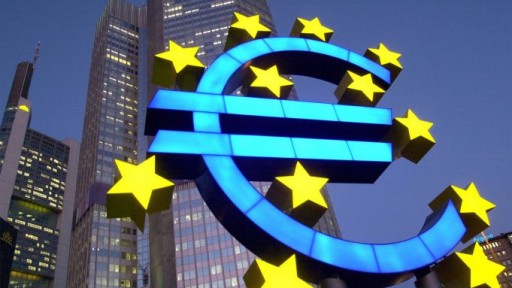- Home
- >
- >
- Bloomberg: Euro Falls as Goldman Sachs Bear Call Underscores Record Shorts

Bloomberg: Euro Falls as Goldman Sachs Bear Call Underscores Record Shorts

The euro fell, halting a two-week rally against the dollar, as Greece’s funding concerns and the European Central Bank’s aggressive monetary easing contrasted with the Federal Reserve’s path toward higher interest rates. The shared currency has slid against 14 of its 16 major peers this year as the ECB carries out an unprecedented plan to buy 1.1 trillion euros ($1.2 trillion) of bonds to support the economy and stave off deflation.
Speculators placed record bets on declines in the euro with the currency dropping for a Record ninth month as Greece strives to persuade creditors to accept proposed reforms and release further aid.
“The euro’s rebound is nothing more than adjustments as it remains pressured by lingering uncertainty over Greece and the ECB’s strong easing stance,” said Kengo Suzuki, chief currency strategist at Mizuho Securities Co. in Tokyo. “It is likely to drift lower toward $1.05.”
The euro depreciated 0.1 percent $1.0875 as of 7:12 a.m. in London, after completing a two week gain on March 27 and trading below 50-, 100- and 200-day moving averages. It was little changed at 129.64 yen. Hedge funds and other large speculators pushed net bearish positions on the euro to a record-high in the week to March 24. They rose to 220,963 contracts, up from 193,774 in the previous period, according to data from the Washington based Commodity Futures Trading Commission. Greece’s Prime Minister Alexis Tsipras will update lawmakers Monday on talks held over the weekend in Brussels between Greek government officials and representatives of the country’s creditors to secure more funds from the euro area and stave off fiscal collapse.
“We continue to expect the euro to weaken vs the dollar over the coming quarters, due to both US cyclical strength and continued QE-driven portfolio rebalancing outflows from the euro area,” analysts including George Cole at Goldman Sachs Group Inc. wrote in a research note to clients on March 27. “As the Fed continues to dismantle forward guidance, the ECB has moved in the opposite direction.” After the Fed tempered market expectations for a mid-year interest-rate increase earlier this month, sending the dollar to its biggest weekly decline since 2011, traders refocused on the direction of monetary tightening the U.S. central bank is pursuing, while other monetary authorities globally eased. Fed Chair Janet Yellen said Friday she expects rates to rise this year. ECB President Mario Draghi said last week he’s confident Europe’s bond-buying program will hit its targets in the first month of operation.
The Bloomberg Dollar Spot Index advanced 0.2 percent to 1,193.46, pushing its climb this year to 5.5 percent. The nine months of gains would extend what is already the longest monthly streak in data going back to 2004.
“The U.S.dollar is in a cyclical bull market,” Sam Tuck, a currency strategist at ANZ Bank New Zealand Ltd., wrote in a report to clients published Monday. “Markets have converged on June/September as the timing of the first hike and USD will continue to rally into this move.”
The Aussie fell as much as 0.4 percent to NZ$1.0204, the lowest since the Australian currency was allowed to float freely in December 1983, before recovering to NZ$1.0241. Iron ore, Australia’s biggest export, tumbled 4 percent on Friday to $53.14 per dry ton, the lowest level since at least 2009.
Against the greenback, the Aussie dropped 0.4 percent to 77.20 U.S. cents, heading for a five-day decline. The kiwi weakened 0.3 percent to 75.43 U.S. cents, set for a four-day loss. New Zealand’s central bank said it sold a net NZ$13 million ($9.8 million) in February and that it had a foreign-currency intervention capacity of NZ$9.62 billion.
 Varchev Traders
Varchev Traders If you think, we can improve that section,
please comment. Your oppinion is imortant for us.






